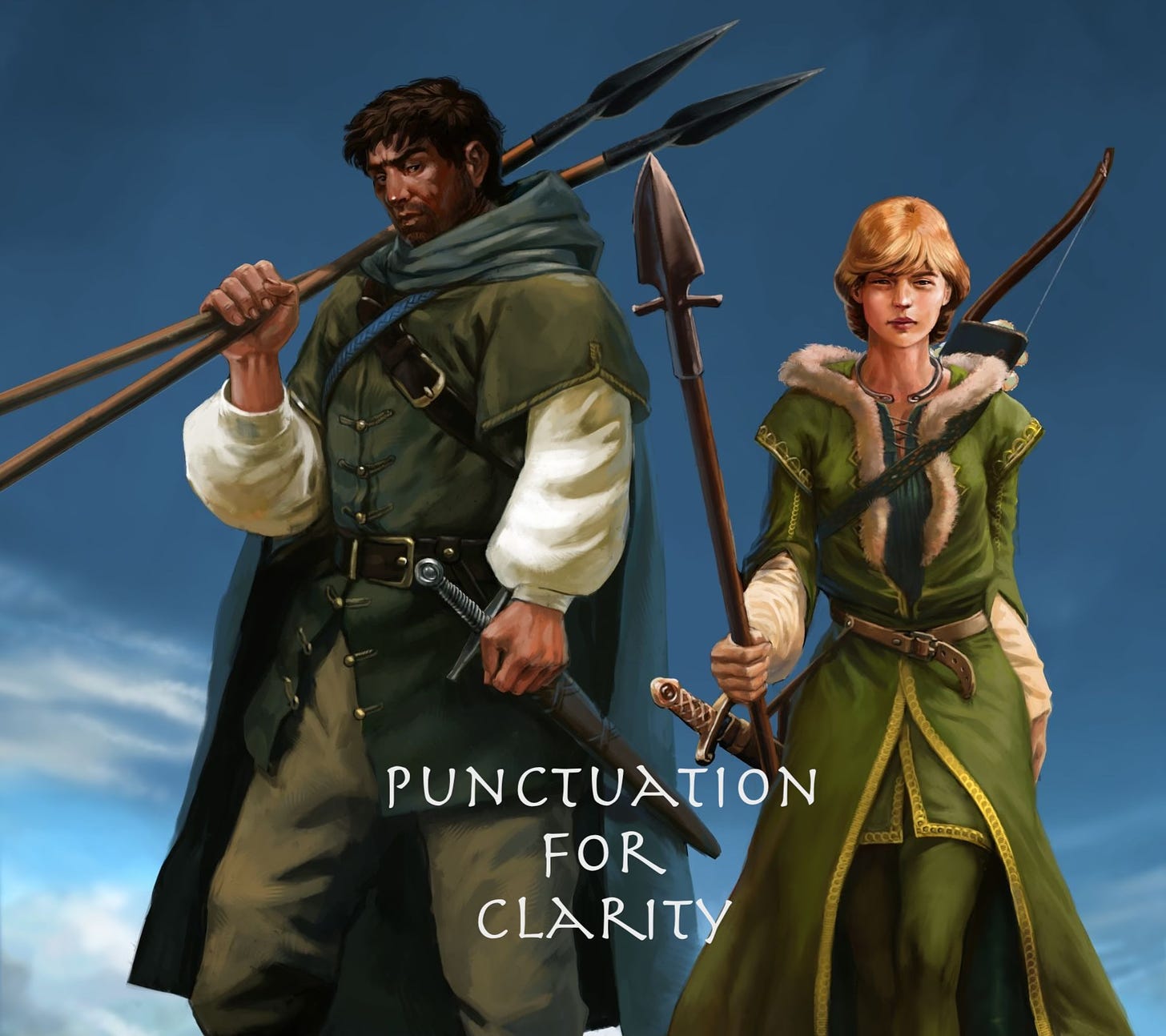
Words to Edit By
Commas are for communication to the reader. They separate parts of a sentence to help the reader understand or experience the words a certain way. They’re not telling the reader when to take a breath, mental or literal.
A Realist Take
It’s a lovely thing to read to others, but most things that most of us write won’t be spoken aloud. (Authors who habitually turn their books into audiobooks would be an exception.) Go back a few centuries and commas were scarce or absent in written texts, including those meant to be performed. Just ask the English professor who once docked me for an incisive observation I once made about “Chaucer’s” (in fact, the modern translator’s) use of punctuation in The Canterbury Tales.
So, please, banish the notion that commas serve the purpose of indicating a breath or pause.
In fact, commas separate things—usually so the reader doesn’t have to pause and sort out the logical relationships among words on a page. Editors, after all, are writers’ and readers’ champions in the eternal war against possible confusion. Imagine all the horrific, sensational, absurd, and mundane misunderstandings might manifest without proper punctuation!
For Instance
Below are a few of the things commas may separate. We’ll dig into each scenario further in separate articles. (I’ve taken the examples from various snippets of the Zshurii’s Song draft I serialized on Substack.)
Introductory phrases:
Like the rest of the company in their nearby knots of seven, they were all saddled up.
Appositives (restatements or rewordings of things) from the rest of the sentence:
Their whole battalion, over three hundred soldiers, was camped along this part of the stream.
Independent clauses from each other (see Grammar 2.0):
Yes, she’d learned to injure others, but the mere thought of it turned her stomach every time.
Dependent clauses from independent clauses (where the dependent clause comes first):
As scimitars rang on metal and scraped on leather above, the enemy barrage slackened.
Dialogue:
“Follow me,” a husky voice replied. “And keep on my tail like a horsefly.”
Lists of things:
Hastily, she collected her kit—saddlebag, steel cap, scimitar, bow, and quiver.
(Groups of) words that need separation for clarity:
So she reckoned she’d face danger and duty head on, with her sisters and brothers in arms.
(Groups of) words conveying contrast or opposition:
Zshurii suppressed the urge to wind around, or to stop and help.
Lone words inserted at the end of a clause or phrase for emphasis:
The other soldiers stepped forward, too, and they all drew from the set of plain, smooth-sanded hardwood sticks Arawah produced from a belt pouch.
Related Editing Guidelines & Tips
[Specific guideline and tip articles will be listed here as they’re published.]
Godspeed and happy rewriting!



